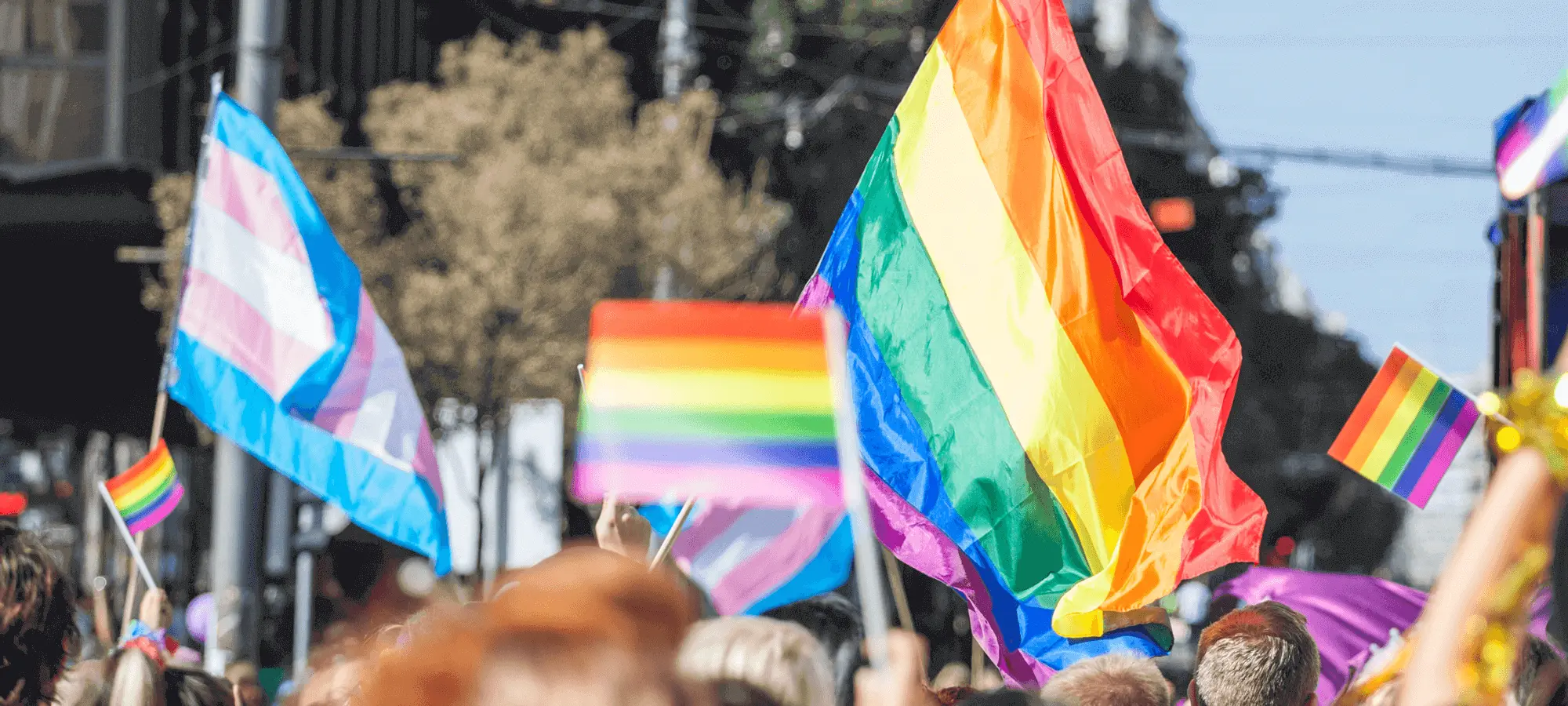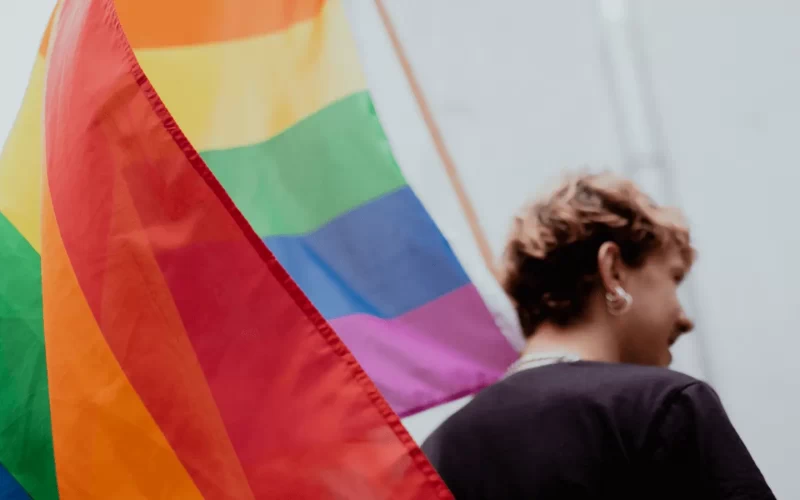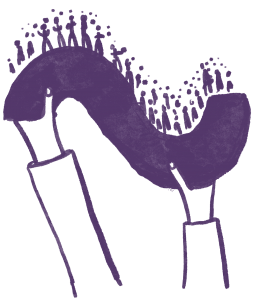
It's so important to us at Everyturn that our colleagues and the people we support feel safe and supported bringing their whole selves into the conversation.
One of our colleagues is kindly sharing her/their own personal experience in the form of a guest blog. We're sure that this will resonate with many people, and we hope that by sharing lived-experiences like this we can help encourage supportive conversations around LGBTQIA+ communities.
I’m a 30 something (with far too many somethings for my liking) woman with a secret. Most of my life I’ve been bi-curious, and for nearly half my life I’ve been in a relationship and happily married to a man with whom I have 2 children. But I never felt that that was it, my happily ever after. It never seemed fair that I was never going to be able to experience a part of me that as the years went on, I was getting more and more frustrated by and made me feel that I was living a lie.
I never kept it a secret from my husband, and for our entire relationship we had been ‘open’ however opportunities with life, work, family and kids meant this was more of a status than an actual practice. Though I did feel affection to people and had a few ‘minor relationships’ these always ended abruptly and were upsetting for me, I knew this wasn’t what I needed or healthy.
Over lockdown I had the realisation that I might be polyamorous (discovered this word by googling ‘why am I attracted to other people?’), which was possibly the worst time to discover this, but it opened up an entire world to me that I wasn’t aware existed. Media, movies, TV programmes, songs, books would have us believe that we spend life looking for the ‘one’, find the ‘one’, get married, buy a house, have kids, work, retire and die happily together. Real life tells us that this nearly always doesn’t happen – after all – divorce is a thing. People evolve, circumstances change, challenges arise and relationships break down. We already accept that humans are capable of loving more than one person, you don’t love the 1st child less when the second comes along after all. When relationships end people aren’t expected to never love again, so why should it be challenging to believe that a person can’t love multiple people at the same time, rather than the linear fashion we consider ‘normal’?
For me, this made so much sense and gave me a clarity that I wished I had years ago. It also meant I could explore the bi-curious side of me that I’d kept hidden for so long. But what to do about it? My husband was supportive but what about the rest of our family and friends? Did they need to know? Would it change how they saw us? Would our suitability as parents be brought into question? What would be the knock on effect on our children? Would our jobs be affected? Could we get fired?
These are issues that concern me and the sad fact is that the answer to some of these is yes, people have lost jobs, been alienated by friends and family and lost access to their children.
Once I started looking that there was so much support in the local community. A year ago I joined an Ethical Non Monogamy group which meets once a month. I’ve learned so much more about LGBTQ+ and what it means to people who are in that category. I meet amazing people and my social circle has massively increased as well as my understanding and acceptance of myself. Since exploring my sexuality I’ve discovered that there are so many more orientations than the common ones and I’ve chosen ones that suit me better than ‘bisexual’, I consider myself Demisexual (doesn’t experience physical attraction unless they form a strong emotional connection first), Pansexual (attracted to a person of any sex or gender), Noetisexual (physically attracted to those they are mentally connected to) and Sapiosexual (physically attracted to a persons mind more so than their appearance).
People may argue that these are unnecessary terms, that attraction and love don’t need labels and rules and that’s absolutely valid. I suppose that I would liken it to being an enthusiast or hobbyist; my husband paints miniatures, he knows the names of all the shades of colours (that look exactly the same to me), has dozens of brushes (all for different things or so I’m told), has learned and practised many different paint techniques and styles; to my unartistic eye the result is a nicely painted model (I can hear him sighing).
Recently I have identified as ‘Gender non-confirming’ as well as ‘female’. I’ve never felt that my gender defines me and I think I’m fortunate in that respect, I’ve always been comfortable in my own skin, wearing what I want and projecting the image that’s right for me. This may come from working in what is generally a male dominated environment.
At the moment my family are not aware, I have come out to close friends and they have been accepting and curious which has been lovely. I’ve generally not made it known at previous jobs as there’s also an element of ‘do people need to know?’ not because I worry about how people see me, but in the same way people don’t need to know my favourite food or country, or whether I drink alcohol or not.
I would like people to think about what LGBTQ+ means to them, regardless of their sexual orientation, gender or, age.
Pride is for everybody, a celebration for all of us to enjoy, its accepting what unites us as equals but also makes us individual and unique. It is beautiful, it brings people together in solidarity, it is open and welcoming and non-judgemental.
It encourages us to have open conversations with friends, family and children. I have two young children, and I want them to ask questions, to be curious and embrace who they are and want to be. Nothing would make me prouder as a parent than if they are the one at school who their peers find comfortable to talk to and be open with.
Chances are everyone will know someone who is part of LGBT+ and if you don’t, it could be because those people in your life don’t feel comfortable making themselves known.
This is why Pride is so important, it is not just a month – but every day, take the opportunity to educate yourself, listen to the journeys of others without judgement and put yourself in their shoes.
Be the person that your friends, family, children, work colleagues, gym buddies, mates, girlfriends, dog walker, babysitter etc would feel happy to ‘come out’ to, and your life will be all the richer for it.
We all have a right to be accepted as our true selves.


